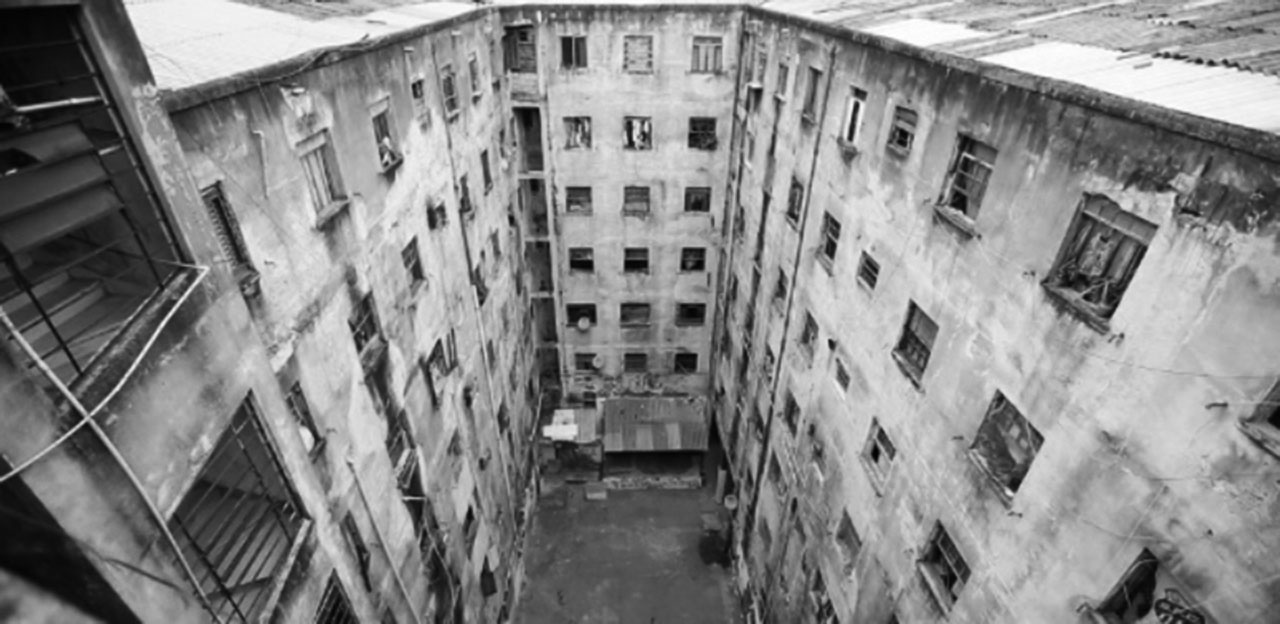According to the Brazilian Constitution of 1988, land banking is a crime. Unlike in, for example, the United States, it is illegal for a landlord to hold a building empty for years, without paying real estate taxes or maintaining the property, waiting for real estate values to rise so that he can flip it. If a building does not perform its social function, any landless citizen has the right to squat in it and pressure the local government to convert it into ownership-based social housing. Although most Mayor’s Offices systematically ignore the law, since 1988, hundreds of buildings across Brazil have been occupied and converted to social housing. Currently there are around 40 occupied buildings in downtown Sâo Paulo, a city which has 290,000 potential housing units available in empty buildings and a housing deficit of 130,000 families. On May 1st, after the fire and collapse of an occupied building on Paysandu square, which killed an estimated 37 people, the Brazilian media began to blame the social movements, despite the fact that this building was occupied by informal sector entrepreneurs. As a result of this attempted criminalization of housing rights activists, a group of 37 social movements, popular fronts, unions, academic institutions and NGOs from Brazil and from around the World released the following public statement, which has been translated by Brasil Wire.
Open Letter From the Urban Reform Movement on the Media and Government’s Blaming of the Victims for the Tragedy on Paysandu Square in São Paulo.
During the early morning of May 1, 2018, in São Paulo, a tragedy occurred in the occupied building on Paissandu square. The organizations and social movements that act in the defense of housing rights give their solidarity to the families that were in the building. It is inadmissible that at this moment, the sadness and pain is being manipulated by the people responsible for these situations to criminalize the social movements and low income workers who have no alternative but to live in occupied buildings.
The families that live in occupations are victims of neglect, of the irresponsibility of the State and of real estate speculation which imposes high costs for housing, especially in the central areas of the cities. This was not the first and will not be the last tragedy, as long as public investment to resolve the housing problem is not enough and not committed to treating access to housing as a right.
While the low income population is penalized, the big urban land owners concentrate millions of Reais in real estate tax debt and repeatedly violate the Federal Constitution. The Mayors Office is not respecting the city’s Master Development Plan, since it has been over a year since it stopped notifying property owners who are failing to obey the laws about the social function of property. The Federal Government has eliminated the Minha Casa Minha Vida housing program for the poorest segment of the population and neglects the needs of the poorest segment of the population while enriching the business community and landlords. Furthermore, the Judiciary – who’s members enjoy an immoral government rent subsidy – ignores the landlords who disobey the law and has systematically positioned itself in favor of the forced evictions of thousands of of families, increasing social inequality. There are numerous empty government buildings in perfect condition to be reformed for social housing.
The occupations are the response of organized families to this situation. The current governments, in accusing the social movements, is taking a cowardly attitude on the part of those who are primarily responsible for this crisis and, through allying with the market, are deepening the urban tragedy.
In conclusion, we reiterate that we are united in the resistance behind every occupation and demand that the State is held responsible for: every refusal to regularize electricity service in occupied buildings; sanitation and risk prevention in occupations; public investment in dignified housing; confronting real estate speculation; Land conflict mediation policies which include popular participation; the conversion of empty buildings into people’s housing; and regularization of land rights in occupations.
How many buildings will fall until society and the governments understand that housing is a right for everyone and a responsibility of the State? We remain mobilized.
São Paulo, May 1, 2018.
Central de Movimentos Populares
Frente de Luta por Moradia
União dos Movimentos de Moradia Movimento dos Trabalhadores Sem Teto
Movimento Moradia para Todos
Frente Brasil Popular
Frente Povo Sem Medo
Centro Gaspar Garcia de Direitos Humanos
Peabiru TCA
Usina Ctah
LabJuta UFABC
Coletivo de ocupações, favelas e cortiços da cidade de São Paulo
Observatório de Remoções
Observa SP
LabCidade FAU USP
LabHab FAU USP
Fórum Aberto Mundaréu da Luz
Sindicato dos Arquitetos de São Paulo
Instituto Brasileiro de Direito Urbanístico
Instituto Pólis
Rede Mulher e Habitat
Secretaria Latino Americana de Vivienda y Habitat Popular
Coalizão Internacional do Habitat
Movimento dos Trabalhadores Sem Terra Leste 1
Movimento de Moradia da Regiao Sudeste
Movimento dos Trabalhadores Sem Terra da Zona Oeste
Unificação das Lutas de Cortiços e Moradia
Movimento em Defesa do Favelado da Região Belem
Movimento de Defesa dos Favelados – Santo André
Associação dos Sem Teto Taboao Diadema
Associação Independente da Vila Nova Esperança
Associação de Moradores da Sólon
Movimento de Moradia City Jaraguá
Movimento de Moradia na Luta por Justiça
Associação Nossa Luta Nossa Terra
Diadema Central Pró Moradia
Suzanense Movimento Independente de Luta Por Habitação de Vila Maria – Ocupação Douglas Rodrigues
Associação de moradores Pantanal capela do socorro
Movimento Terra Livre
[qpp]

